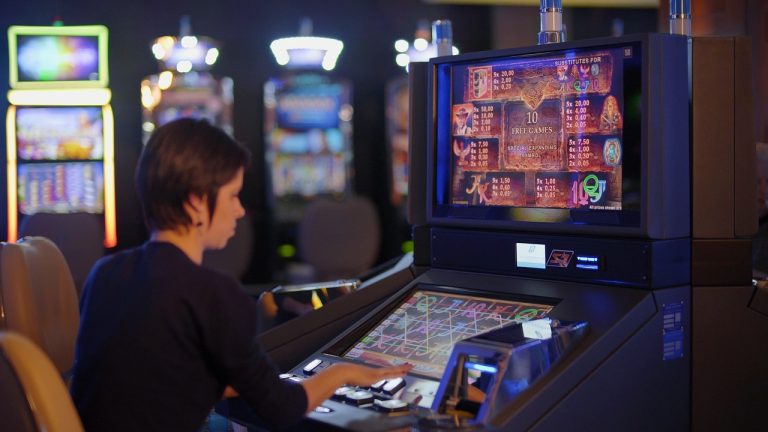Online gambling has surged in popularity over the past decade, transforming from a niche activity into a mainstream form of entertainment. With the convenience of accessing casinos from anywhere and a wide array of games at our fingertips, millions are drawn to online platforms daily. But what drives this behaviour? Understanding the psychology behind online gambling reveals the intricate interplay of reward systems, the thrill of risk, and various aspects of player behaviour that make online casinos so appealing.
Reward Systems
One of the primary psychological factors that make online gambling enticing is the sophisticated reward system embedded within these platforms. Online casinos are meticulously designed to trigger the brain’s reward centres, primarily through the release of dopamine—a neurotransmitter associated with pleasure and motivation.
Intermittent Rewards
Unlike predictable rewards, intermittent rewards are unpredictable and sporadic. This unpredictability heightens excitement and anticipation, making each game session feel unique and thrilling. For instance, the chance of hitting a jackpot or receiving a bonus can occur at any moment, keeping players engaged and eager to continue playing in hopes of the next big win.
Variable Reinforcement Schedules
Online casinos often employ variable reinforcement schedules, where rewards are given out on an irregular basis. This method is highly effective in maintaining long-term engagement because players cannot predict when the next reward will come. The unpredictability fosters a persistent desire to keep playing, as the next reward could be just around the corner.
The Thrill of Risk and Reward
The inherent risk involved in gambling plays a significant role in its psychological appeal. Humans are naturally inclined to seek out challenges and experiences that evoke strong emotions, and online gambling provides just that.
Adrenaline Rush
Engaging in high-stakes games or placing significant bets triggers an adrenaline rush, heightening the overall excitement and enjoyment of the activity. This physiological response can create a sense of exhilaration that players may find addictive, driving them to return for more of the same intense experiences.
Risk and Reward Balance
The delicate balance between risk and potential reward is another psychological draw. The possibility of winning a substantial amount from a relatively small bet creates a compelling incentive. This dynamic encourages players to take risks they might not consider in other aspects of their lives, driven by the allure of a life-changing win.
Player Behaviour and Cognitive Biases
Player behaviour is heavily influenced by various cognitive biases and psychological tendencies that online casinos exploit to enhance their appeal.
The Illusion of Control
Many players believe they can influence the outcome of games through skill or strategy, even in games of pure chance like slots or roulette. This illusion of control can lead to increased engagement and longer playtimes, as players feel more invested in their ability to affect the results.
Gambler’s Fallacy
The gambler’s fallacy is the mistaken belief that past events can influence future outcomes in independent events. For example, a player might think that after several losses, a win is “due.” This cognitive bias encourages continued play, as players attempt to break what they perceive as a losing streak.
Near Misses
Near misses, where players come close to winning but fall short, are strategically used to keep players engaged. These almost-winning scenarios activate the brain’s reward system similarly to actual wins, reinforcing the desire to continue playing despite repeated losses.
The Role of Accessibility and Convenience
The accessibility and convenience of online casinos significantly contribute to their psychological appeal. Unlike traditional brick-and-mortar casinos, online platforms are available 24/7, allowing players to engage at their own pace and on their own terms.
Immediate Gratification
The instant access to a vast array of games provides immediate gratification, satisfying the human desire for quick and effortless entertainment. Whether it’s a quick spin on a slot machine or a fast-paced game of blackjack, the ability to start playing instantly is a powerful motivator.
Anonymity and Privacy
Online gambling offers a level of anonymity and privacy that traditional casinos cannot match. Players can enjoy their favourite games without the social pressures or judgments that might accompany visiting a physical casino. This sense of privacy can make gambling feel safer and more comfortable, encouraging more frequent play.
The Impact of Social Factors
Social elements also play a crucial role in the psychology of online gambling. Many online casinos incorporate social features that enhance the overall experience and foster a sense of community among players.
Social Interaction
Live dealer games and multiplayer options allow players to interact with others, replicating the social aspect of traditional casinos. These interactions can make the experience more engaging and enjoyable, increasing the likelihood of continued participation.
Competitive Spirit
Leaderboards, tournaments, and achievements tap into the competitive spirit of players, motivating them to strive for higher rankings and rewards. This competitive drive can lead to increased time spent on the platform as players aim to outperform their peers.
Among the various games available, scratchcards online hold a unique appeal. They offer a simple and immediate form of entertainment with the instant gratification of uncovering a potential prize. The straightforward nature of scratchcards, combined with their quick playtime, makes them an attractive option for players seeking a brief and engaging gaming experience without the complexity of more involved games.
The psychology of online gambling is a complex tapestry woven from reward systems, the thrill of risk, cognitive biases, and the convenience of digital platforms. Understanding these factors sheds light on why online casinos are so appealing and why they continue to attract a growing number of players worldwide. While the allure of online gambling can be powerful, it’s essential for players to approach it with awareness and responsibility, ensuring that the entertainment remains enjoyable and within healthy boundaries.
By recognizing the psychological mechanisms at play, both players and industry stakeholders can better navigate the online gambling landscape, fostering a safer and more informed gaming environment for all.


